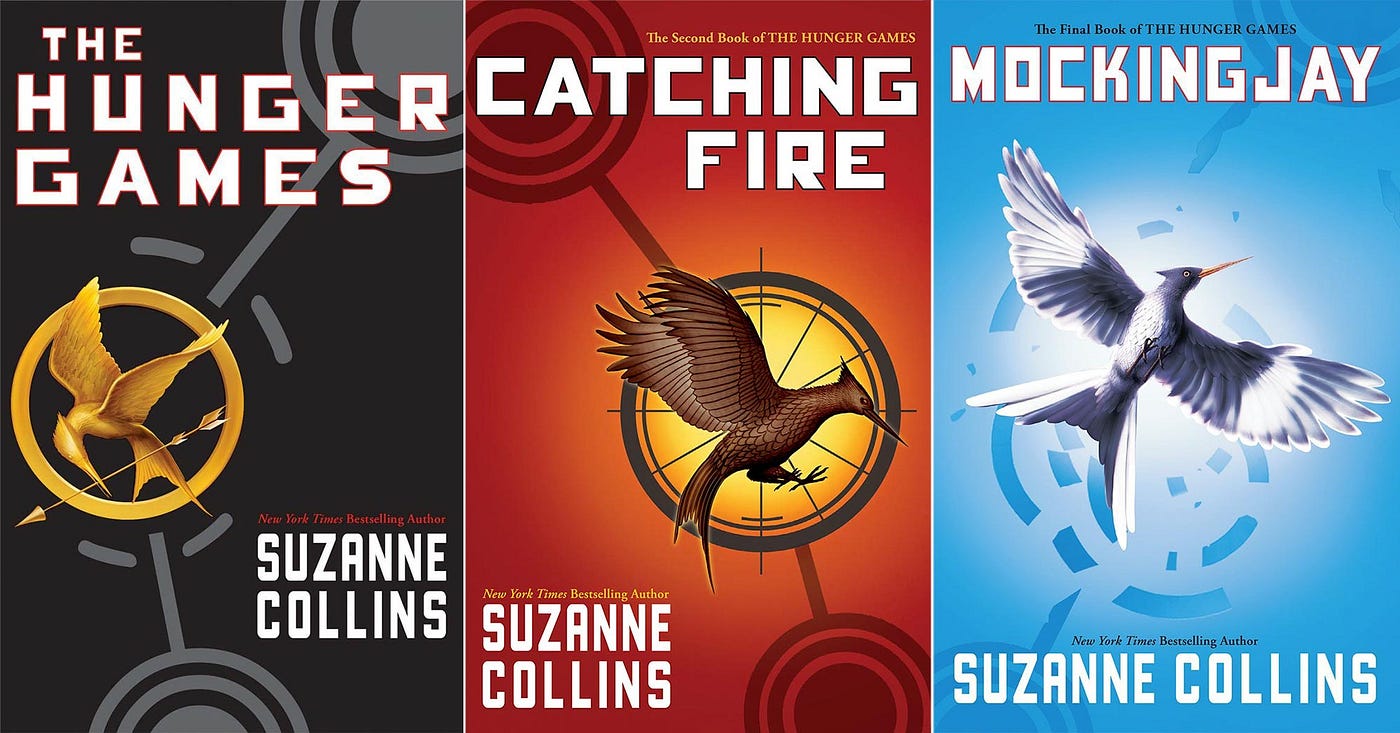
At a time when this renowned franchise once again adorns theaters across the globe, revisiting the literary trajectory of “The Hunger Games” seems not only fitting, but necessary. Suzanne Collins, author of each of the five novels, crafted this world with intricate intention. It is within her formative words that millions of readers have spent the last two decades piecing together the skillful messages woven within her pages. With her skillful writing, Collins creates an electric, intriguing literary world readers are bound to be entranced by for years to come.
“The Hunger Games,” independent of its highly successful film debut, was irrevocably alluring to readers upon its release. The book’s popularity no doubt arose due to its unique, albeit disturbing premise: Children are chosen by the government to fight to their death, all for the pleasure of those watching. These darker themes, coupled with the label of a young adult novel, create a distinct market as a book for both older and younger readers alike.
Although the first book came out in 2008, Collins has maintained the momentum of the series through the 2020 release of the newest installment to the series, “The Ballad of Songbirds and Snakes.” The book seamlessly ties together new plot additions with the older tale, providing readers with a villain backstory that enriches the series, rather than riddling it with unnecessary content. Developing the creation of the games along with the villain origin story of President Snow grants readers the opportunity to fill in the gaps that Collins instrumentally left vague in the original trilogy.
The series is bound to maintain its success due to the revitalizing nature of its content. Collins’s additions to the series are not redundant, but refreshing — due simply to her commitment to write only when it provides a meaningful addition to the series.
This sentiment is reflected in the main character, Lucy Gray Baird, of the new book, who in response to demands from Snow of her to sing to entertain in the film, says, “I don’t sing when I’m told, I sing when I’ve got something to say.”
“The Hunger Games” also maintains its legitimacy through its fascinating correlations with Greek mythology and commentary on the cycle of social revolution. The original trilogy adapts the Greek myth of Theseus and adds a modern understanding of revolts; notably referencing at the end of the last book that while democracy was successfully achieved through revolution, humans are creatures bound to fall victim to a tyrannical social hierarchy. This plot point establishes a commentary on the inevitable cycle of revolution and human downfall — not a love story between Katniss and Peeta — as the undertone of the series.
It is within this framework that “The Hunger Games” excels where many others fail. At the end of the day, the series is not centered around a love triangle or irrelevant drama, but the tenacity and selflessness of a young woman that allows her to fight to keep those she loves alive. The series brings into question both the real costs of war, and the horrific nature of modern entertainment. With this, the series is also not afraid of embracing its darker messaging, as the pessimistic ending of the prequel alluded to the deaths of hundreds of children to come in the next 64 years. This perfectly contrasts the surprisingly idealistic way the original trilogy ends, creating a more realistic ending to highlight the devastating results of war.
This franchise, therefore, is irrevocably strategic. Where the “Mockingjay” films fall short is exactly where “The Ballad of Songbirds and Snakes” succeeds. Not only does the new book provide a fascinating look into a pivotal character, but Collins demonstrates her ability to pivot after critiques that the last two Hunger Games films lacked the intense stakes that an actual Hunger Games would incite. The prequel also features an ending that is up to the reader’s own personal interpretation, allowing readers to remain thinking far after they finish reading the last page. Ultimately, Collins crafts a story that is both a backstory and a thrilling, gory tale of the full tenth Hunger Games that is fittingly written to be turned into an exhilarating feature film.
Appropriately, with the Nov. 17 premiere, the franchise gained a highly-anticipated fifth movie, as the series uses its literary impact to immerse readers further in the popularity of its films — the newest film is no exception. Drawing on direct references to characters and quotes from the original trilogy, the franchise’s popularity is bound to propel the book and its adaptation to cinematic success.
Advertisement
The Hunger Games is as horrific as it is devastatingly emotionally rich. It is written with such emotional weight and disturbing violence that sticks with readers long enough to drive them to see the fascinating tale translated to the big screen. Although the release of a new book is contested, it would be of no surprise if an addition to the series emerged in the next few years. It would, however, be shocking if it didn’t meaningfully build upon the impressive legacy the series has forged in popular literature over the past two decades.
—Staff writer Monique I. Vobecky can be reached at [email protected]. Follow her on X @moniquevobecky.
